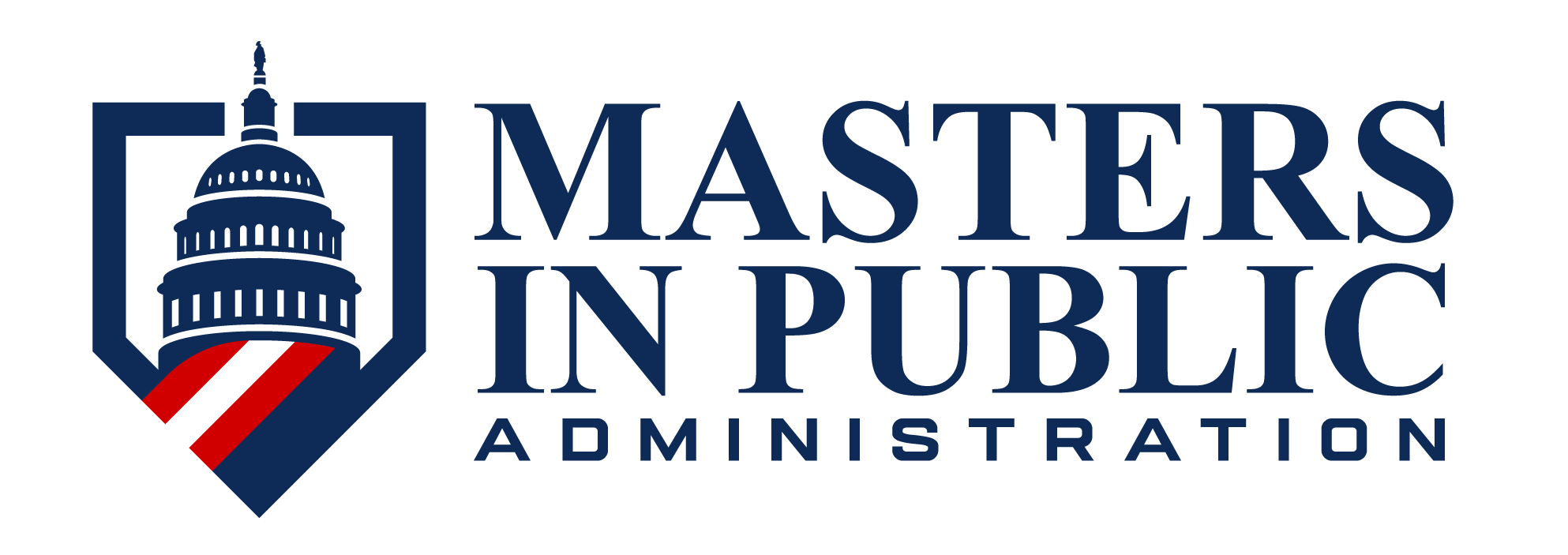Introduction
Massachusetts offers the opportunities for MPP students through partnerships between academic institutions and policy organizations. Many programs can effectively collaborate with state agencies, healthcare systems, and advocacy groups, enabling students to tackle real-world policy issues. Massachusetts’ leadership in healthcare and biotech, MPP programs often including specialized tracks in health policy or technology policy. Students are in policy labs, capstone projects, or internships in areas such as environmental justice or urban planning, aligning their education with the state’s dynamic policy environment.
Key State Takeaways:
- Total MPP Programs Statewide: 8
- NASPAA-Accredited Programs: 2
- Annual Resident Tuition Average: $26,000–$28,000 (PYR)
- Annual Non-Resident Tuition Average: $34,000–$36,000 (PYR)
- Program Formats Offered: On-campus, online, hybrid, executive, mid-career
- Average Starting Salary: $78,000
NASPAA-Accredited MPP Programs in Massachusetts
For Massachusetts students, NASPAA-accredited programs offer assurance of quality education and access to a global network of professionals and resources. Accreditation can signals to employers that graduates have received training aligned with industry expectations, enhancing their employability in competitive policy sectors. Here are the two MPP programs that are NASPAA-accredited in the State of Massachusetts:
University of Massachusetts – Boston
- Boston, MA.
- 39 Credit Hours
- Campus
Program:
Masters of Public Policy (MPP)
Program Overview:
Located in the heart of Boston, Massachusetts, the program provides an unparalleled setting for engaging with public institutions, research centers, and nonprofit organizations. UMass Boston’s MPP emphasizes social justice, inclusive governances, and applied policy analysis, reflecting the university’s mission as an urban public research institution dedicated to advancing equity and opportunity. Students gain both the analytical and leadership skills needed to evaluate and influence policy decisions at local, state, and federal levels. With the an emphasis on practical experience, small classes, and affordable tuition, UMass Boston’s MPP program offers a rigorous yet accessible path to leadership in the public and nonprofit sectors.
Unique Components:
- Strong Connections to Massachusetts State Government and Nonprofits: Located near Beacon Hill, students have direct access to internships and policy networks within state agencies, advocacy groups, and research institutes.
- Two-Year, Cohort-Based Program Structure: The MPP features an intentional cohort design that builds collaboration, teamwork, and professional networking among peers throughout the two-year program.
Key Data Highlights:
- Format: On-campus
- Accreditation: NASPAA
- Credit Hours: 39
- GRE: Not required
- Resident Tuition: $13,085 (PYR)
- Non-Resident Tuition: $29,829 (PYR)
- Acceptance Rate: 60%
- Enrollment: 50-70 students
Other Considerations:
- Affordable, Public Research University Advantage: As part of the University of Massachusetts system, the Boston campus offers high academic quality and research depth at a fraction of the cost of comparable private institutions.
Northeastern University
- Boston, MA.
- 40 Credit Hours
- Campus
Program:
Masters of Public Policy (MPP)
Program Overview:
The Master of Public Policy (MPP) program at Northeastern University, housed within the School of Public Policy and Urban Affairs (SPPUA), trains students to craft and implement policy solutions that advance equity, innovation, and community resilience. Boston, Massachusetts, Northeastern’s MPP program reflects the university’s global reputation for experiential education, giving students hands-on exposure to real-world policymaking in one of the most active public policy environments in the country.
The program bridges data analytics, leadership, and social policy, preparing graduates to confront challenges in urban sustainability, governance, and economic development. Students engages deeply with both the local and global dimensions of policy while benefiting from the university’s partnerships with city governments, research centers, and advocacy organizations. The result is an graduate experience that is practical, forward-thinking, and deeply committed to social impact.
Unique Components:
- Experiential Policy Learning Through Co-op: Building on Northeastern’s hallmark co-op tradition, MPP students complete professional placements in government agencies, policy consultancies, and nonprofit organizations, blending classroom theory with paid, hands-on experience.
- Urban Innovation and Policy Practice: The program leverages Boston’s role as a policy innovation hub, connecting students with city initiatives in housing, climate resilience, mobility, and technology-driven governance.
Key Data Highlights:
- Format: On-campus
- Accreditation: NASPAA, NECHE
- Credit Hours: 40
- GRE: Not required
- Tuition: $28,300 (PYR)
- Acceptance Rate: 55%
- Enrollment: 80-100 students
Other Considerations:
- Flexible and Career-Oriented Learning Path: Designed for both full-time students and working professionals, the MPP offers evening and hybrid courses, and a culminating capstone project with real client organizations to showcase applied policy expertise.
Non-Accredited Schools
Massachusetts is home to several other great non-accredited MPP programs. These institutions often emphasize innovation, data-driven policy, and civic engagement, aligning with Massachusetts’ identity as a hub of higher education and public service leadership. For students looking out at an urban, globally oriented, and flexible pathways into policy careers, the state’s non-accredited MPP programs remain excellent, practice-oriented alternatives to traditional NASPAA-accredited degrees:
| Institution | Location | Accreditation | Credit Hours | Modality |
|---|---|---|---|---|
| Brandeis University | Waltham, MA | NEASCCIHE | 64 | On-Campus |
| Harvard University | Cambridge, MA | NEASCCIHE | 72 | On-Campus |
| Worcester State University | Worcester, MA | NEASCCIHE | 36 | Online/On- Campus |
| University of Massachusetts – Amherst | Amherst, MA | NEASCCIHE | 48 | On-Campus |
| University of Massachusetts – Dartmouth | Dartmouth, MA | NEASCCIHE | 36 | Online/On- Campus |
| Simmons University | Boston, MA | NEASCCIHE | 33 | On-Campus |
Harvard University
- Cambridge, MA.
- 72 Quarters
- Campus
Program:
Masters of Public Policy (MPP)
Program Overview:
Harvard University’s Master in Public Policy (MPP) program, offered through the prestigious John F. Kennedy School of Government (Harvard Kennedy School), is one of the world’s most influential public policy degrees, known for developing leaders who shaping policy at the highest levels of government, nonprofits, and international institutions.
Students learn from a pretty popular faculty and practitioners who have and are defining the field of public policy, and they work alongside a diverse, international cohort of peers equally committed to public service. The MPP’s structures (centered around problem-solving workshops, data-driven policy design, and applied leadership development) help graduates leave with both the technical help and common sense to address today’s most complex social, economic, and global challenges.
Unique Components:
- World-Leading Policy Education and Global Network: Harvard Kennedy School’s MPP program connects students to one of the most powerful global networks of policymakers, alumni, and thought leaders working in more than 150 countries.
- Policy Analysis Exercise (PAE): The program culminates in the signature PAE, a client-based capstone project where students partner with real organizations (governments, nonprofits, or international agencies) to develop actionable policy recommendations.
Key Data Highlights:
- Format: On-campus
- Accreditation: NECHE
- Credit Hours: 72 (quarters)
- GRE: Optional
- Tuition: $65,000 (PYR)
- Acceptance Rate: 8%
- Enrollment: 220 students
Other Considerations:
- Quantitative and Analytical Core Curriculum: The first-year foundation emphasizes economics, statistics, and decision science, building the analytical skill set necessary for data-informed policy design and evaluation.
Career Outlook
MPP graduates in the Massachusetts area can find impactful roles in public agencies, nonprofit organizations and private institutions leveraging their skills to address critical issues such as affordable housing, environmental sustainability, transportation and healthcare equity. Below is a solid list of job opportunities that highlight the diverse and rewarding career paths available to MPP graduates in the Bay State.
- Healthcare Policy Analyst at Massachusetts General Hospital: Develop and evaluate good policies to improve patient care reduce healthcare costs, and enhance operational efficiency. This role involves analyzing healthcare regulations, coordinating with stakeholders, and recommending strategies for better healthcare delivery.
- Clean Energy Program Manager at Massachusetts Clean Energy Center (MassCEC): Manage and promote renewable energy projects across the state. Responsibilities include developing sustainable funding initiatives, overseeing project implementation and supporting the growth of clean energy businesses in Massachusetts.
- Urban Policy Advisor for the City of Boston: Address urban challenges such as housing affordability, transportation equity and economic development. This opportunity for the position involves collaborating with community organizations analyzing city data, and proposing innovative policies to improve quality of life in Boston.
- Education Policy Coordinator at the Massachusetts Department of Elementary and Secondary Education (DESE): Support curriculum reforms, teacher development programs and educational equity initiatives. The role requires analyzing education data drafting policies, and implementing programs to enhance K–12 education across the state.
- Public Transportation Planner at the Massachusetts Bay Transportation Authority (MBTA): Develop and implement transportation policies to improve public transit services in the Greater Boston area. This includes conducting ridership studies proposing infrastructure improvements, and ensuring compliance with environmental regulations.
Frequently Asked Questions (FAQ)
Q: What is this state’s top MPP program?
A: The top MPP program in Massachusetts is offered at Harvard University’s John F. Kennedy School of Government. Program focuses on developing strong analytical, leadership and communication skills preparing students to address complex public policy issues across the world. Blends academic theory with real-world application through case studies, simulations and internships. Students benefit from Harvard’s unmatched global network and connections to major policy institutions in Boston and beyond.
Q: What makes studying public policy in Massachusetts distinctive?
A: Massachusetts offers dynamic policy landscape driven by innovation, higher education, and social progress. Students have access to a dense network of government agencies, think tanks, and advocacy organizations in the Greater Boston area. State leadership starting in education, healthcare, and technology also provides MPP students with opportunities to engage in cutting-edge policy research and implementation.
Q: How does an MPP differ from an MPA in Massachusetts?
A: The MPP (Master of Public Policy) focuses on policy design, data analysis, and evaluation, ideal for those who want to shape public policy or conduct research. MPA (Master of Public Administration) emphasizes management, budgeting and implementation within many great public institutions. MPP programs at UMass Amherst and Brandeis are often super research-intensive while MPA programs focus on organizational leadership and governance.
Q: What skills and coursework will I gain in a Massachusetts MPP program?
A: MPP students in Massachusetts build expertise in economics, data analytics, ethics and policy evaluation. Programs combine rigorous quantitative training with a focus on communication and leadership. Brandeis, for example students examine inequality and social justice through applied policy analysis, while UMass Amherst’s program emphasizes hands-on learning through the community partnerships and internships.
Q: What kinds of careers do MPP graduates in Massachusetts pursue?
A: Graduates often work as policy analyst, program evaluators, nonprofit directors, and government affairs specialists. Many find opportunities with Massachusetts Executive Office for Administration and Finance, MassHealth, or Boston-area non profits address housing, transportation, and education. Others enter the consulting, research, or legislative roles in state or federal government.
Q: Are flexible or online MPP options available in Massachusetts?
A: Yes. While Harvard and Brandeis offer traditional on campus programs, UMass Amherst provides flexible and affordable options including hybrid and online tracks. Programs are designed to accommodate working professionals without sacrificing the analytical rigor of an in-person experience.
Q: What is it like living and studying in Massachusetts as a graduate student?
A: Massachusetts combines world-class academics with a vibrant cultural and professional environment. Boston and its surrounding communities and suburbs offering endless opportunities for networking, internships, and public engagement. Cost of living can be higher than what some are normally used to, but the concentration of top universities and employers makes Massachusetts an environment for public policy leaders.




